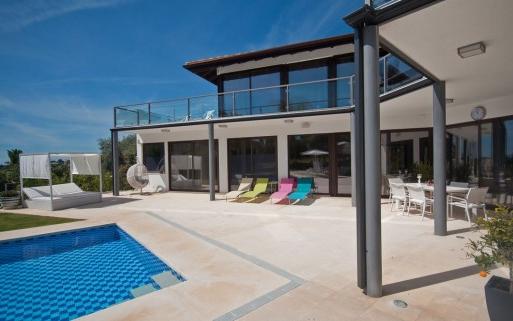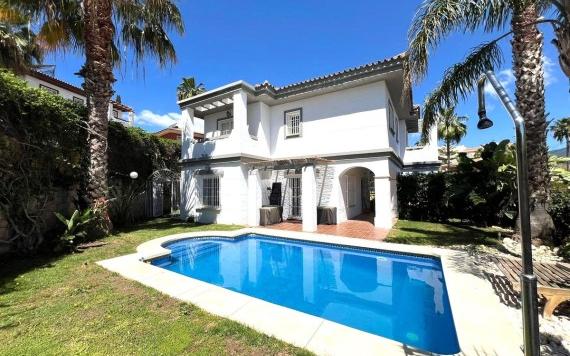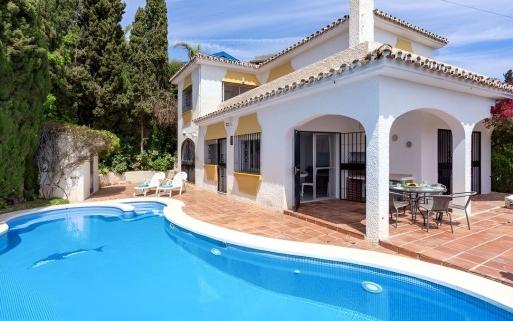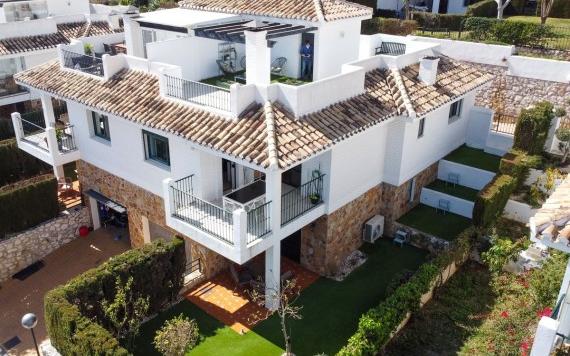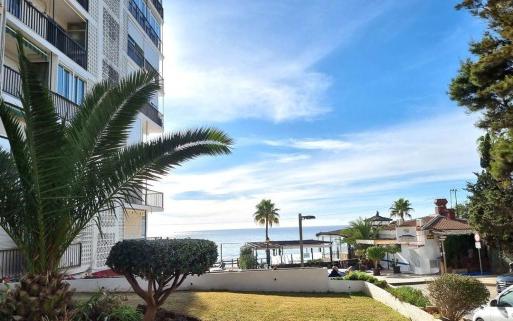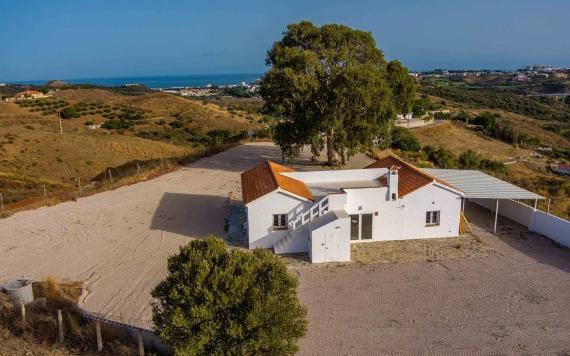
Buying A New Development Property In Spain
Spain is becoming an increasingly popular destination for overseas property investors from all over the world. And it has long been a popular spot for second homeowners too. With such high demand for property in Spain people are investing heavily into constructing new build homes in Spain.
But the process of buying a New development property in Spain is different from the process of purchasing an already occupied property in the country. So, what does the process look like? What additional costs do you need to know about? And what are the benefits, or the risks, involved in buying a New development property in Spain?
The aim of this guide is to answer all of these questions, and leave you feeling more prepared to invest in an under-construction or off-plan property in Spain:
Disclaimer: The contents of this guide are for informational purposes only. Buyers are advised to conduct their own research and not to rely solely on the information contained within this guide when purchasing a property. Seek independent advice as well as advice from your estate agent and consult multiple sources to gather as much information as possible.
What Are The Benefits Of Buying A New Development Property In Spain?
To kick things off on a positive note we’ll detail the benefits of purchasing a newly built property in Spain and there are many!
The first thing to note is that properties purchased off plan in which construction is not yet completed tend to have a discount on current market values. That means you can expect to purchase these properties for anything between 10% and 30% less than you would for a similar party in Spain that is already constructed and occupied. In effect the reason you are receiving this discount is because of the risk you are taking in handing over your hard-earnt cash for something that hasn’t been built yet. The money you are paying for the as yet unconstructed property also serves as a capital investment to help finance the development of the property, and this discount recognizes this too.
Because this discount can add up to a relatively significant sum of money, it is an excellent and tangible benefit of buying a New development property in Spain.
One of the biggest benefits of buying a new-build property, and a benefit that is universally recognized Europe-wide, is the quality of the property you are purchasing. New properties are modern and tend to be constructed using all of the most innovative and up-to-date building materials and techniques.
All newly built properties will have to conform to the most recent and most stringent Spanish building regulations. This means that newly built properties should be the very highest and very best quality available on the market at the time of their construction. Although it is important to confirm this with your developer, as soon development companies will offer higher specifications than others. Ensure that your developer is building to the highest possible spec and you will reap the benefits of this.
Another benefit from a financial perspective is that when you purchase a newly built property directly from a developer in Spain you are entitled to a series of consumer guarantees under Spanish consumer law. These mean that not only will your property be delivered to the required specs, but that you will have guarantees in place to ensure it remains at this spec for a pre-determined period of time. These vary in length depending on the guarantee but in the case of structural defect, your property is guaranteed for 10 years. This means that you will have the support of your developer for at least a decade in the unlikely event that something goes wrong with your newly built home.
Another excellent benefit of purchasing a newly built property is that if you invest in the building before it is constructed then your developer may give you some say over the fixtures and fittings that the property is equipped with. This is very common practice with larger developers who will give you a choice (usually from a small selection) of items such as flooring, tiles, bathroom fittings, and other fixtures.
If you are buying a property that has already been constructed and finished, then you will have no scope to adapt it to suit your tastes. Meaning that you will either have to live in a property that doesn’t match your style or spend more money on changing these relatively new fixtures and fittings. This flexibility then is a huge benefit.
What If I Change My Mind?
The final benefit that not many new build purchasers consider is that, when buying a new build property there is a natural delay between the signing of sale contracts and delivery of your property. This is the period in which the property is actually being constructed. In this ‘empty space’ if you change your mind about the property you have chosen then you still have the option to sell the contract on to someone else. If you do this you could potentially make a profit without ever actually owning the property, and without having to cover the expenses involved in reaching the completion stage of the purchase.
What Are The Drawbacks Of Buying A New Development Property?
Of course, in the spirit of balance it’s important to acknowledge that there are some drawbacks to investing in a new development property. The first and most obvious of these is that you are investing in a property that hasn’t been built yet – and the building process takes time. This is particularly true in Spain where bureaucracy can tie up any project significantly.
You should expect to wait up to 2 years for the delivery of your property. If you’re looking to move now this is a huge disadvantage. But we should also acknowledge that for other buyers that have other commitments, or need time to save the final balance, this could be considered an advantage too.
It’s also worth noting that there is only a finite amount of space in Spain, and that many people feel the best land for development has already been developed on. This means that you may find you’re investing in out-of-town locations, or in areas where the views and facilities are inferior to properties that have already been built.
It’s also important to consider the risk that what you are agreeing to invest in might not be what will actually be delivered. Factors outside of your developer’s control, such as the weather or the availability of materials, could delay completion. And delays in large projects such of this are more common than you think. There is also the risk that your developer badly manages their investment and that what you receive isn’t what you sign up for, or worse, isn’t delivered at all.
This can happen for 2 reasons: firstly, because understanding what plans and specifications mean in terms of finished product is more difficult than it might seem, and secondly because developers in Spain just like anywhere else, have been known to promise one thing and deliver another. This is a real risk is Spain where off-plan property sales are not adequately documented and there are regular quality complaints.
What Happens If This Happens To Me?
If you do invest in a new development property and find that you fall victim to a poorly constructed property, then you are protected by Spanish consumer law. In fact, you have significant rights and are protected by laws and regulations that developers are legally bound to adhere to.
Buyers who experience problems as a consequence of poor build quality or failure to meet build specifications are urged to file complaints against the developer. But this should still be considered a downside of buying an off-plan property, as you do run the risk of being disappointed with your property and having to go through this extra bureaucratic process.
So, what could go wrong? Below is a breakdown of all of the complaints that were made about new built properties in the most recent reporting:
- 21% of complaints concerned the inappropriate installation of fixed elements such as radiators, toilettes, etc.
- 10% of complaints concerned garages and parking spaces, which are difficult or impossible to use.
- 5% of complaints concerned build locations that were not indicated in the plans or that had other unforeseen and undesirable consequences.
- 1% of complaints concerned unexpected changes to interior distributions such as the elimination of a bedroom or the change in shape of a room.
- 57% of faults detected in new build properties in Spain were related to damp (damp rising from the ground, or through poorly insulated walls and ceilings).
- 18% of faults concerned defects in wooden flooring.
- 15% of faults concerned poor insulation.
- 7% of faults concerned poor tiling.
- 3% of faults concerned poor paintwork and other details such as scratched fixtures.
What Types Of New Development Properties Are Available In Spain?
Do you have a specific property type in mind for your investment in Spain? Perhaps you’re looking for a city pied a terre, or you want a larger detached home with enough room to host your whole family?
The good news is that both apartments and detached homes fall within the parameters of what is available as a new development property in Spain right now. Here’s what you need to know:
Apartments and semi-detached properties
Apartments and semi-detached properties are the most popular and readily available property types to buy off-plan in Spain. These are properties that have been designed by a developer as part of a larger project and are approved by the municipal authorities as a whole.
It’s worth bearing in mind that how you visualize the property you are purchasing on paper may not correlate with the reality of what you receive. And this can be particularly true of apartments and semi-detached buildings as your section of the property forms a smaller part of a much larger building project.
But buying an apartment or a semi-detached building off plan does have its own unique benefits. Buying off-plan is the cheapest way to buy a new build property. You are effectively reaping the financial benefits of being prepared to wait for the construction of your property to be completed. If there are no delays or unexpected hold-ups you can expect to wait between 14 and 18 months.
Detached homes
Detached properties can also be purchased off-plan from developers. There are the same advantages and drawbacks of buying a detached house in this way as there are to buying an apartment or semi-detached property.
It’s worth noting however that the economies of scale, and the profit margin available to developers, means that the discounts available for purchasing a new detached home are likely to be smaller when compared to the purchase of a semi-detached or apartment property.
Buying a detached property off-plan from a Spanish developer involves choosing a plot and defining the plans and specifications of the property to be built on it. Bear in mind that land sales in Spain attract VAT at the standard effective rate, not the reduced rate for new homes. An experienced developer may be able to help you minimize these costs: talk to several different developers and find the most experienced provider who is able to minimize your costs whilst maximizing the benefits and quality of your build.
Can You Negotiate With The Developer?
The world of purchasing a new property can be high-pressure and high-energy. Many developers and the estate agents they work with are keen to sell every unit as quickly as possible, which means they can sometimes earn a reputation for being pushy.
But if someone is trying to push you into a decision that you aren’t ready to make then you should see this as a red flag: take the time that you need to make the informed decision that’s right for you. The developer might imply that demand is high and that you could miss out on securing your chosen property if you don’t buy now. But stay strong and don’t be pressured into making an impulsive commitment.
We always advise our clients that whilst it is beneficial to express your interest, you should consult your lawyer and other professional advisors before you sign anything, including a reservation contract for a new development property. Tell the developer you are negotiating with that you want to take a cooling off period before you are prepared to sign or pay anything. And then use this cooling off time to do your due diligence: have a lawyer check the contract and do as much research as possible about the developer and the development. The internet is your friend here.
So, when is the right time to ask for a discount? We live by the motto that if you don’t ask then you don’t get! Many developers are reluctant to give additional discounts, but if you ask for one you may find that some will have between 5% and 10% wriggle room that they can offer to potential buyers.
Whilst many developers are not prepared to budge on price, there are other factors that you could use as negotiation tools. These include negotiating for better payment terms, better fixtures, or even a furniture package. Fixture packages are often graded (Bronze, Silver and Gold, for example) and whilst the bronze package will be included as standard, many developers will be prepared to upgrade this to a silver or even gold package for free as a form of buyer’s incentive.
You should also try and negotiate an agreement, to be included as a clause in the contract you sign, whereby you can withhold 5% of the price at the signing of the deeds, to be paid after a specified snagging period in which the developer has to put right any faults you identify.
Negotiation Tips
- Let the developer and estate agent know you have seen more than one development. And the development you choose will be dependent on the perks offered in this negotiation.
- Visit several different development properties to get a feel for what kinds of perks are being offered or what discount is realistic.
- Hire a good lawyer. They can help with negotiations if necessary and check over any contracts before you sign them. They will also be able to proceed to purchase on your behalf if you aren’t based in Spain at the time.
When Should I Make A Payment?
If you’re ready to proceed and commit to your chosen development property, then you shouldn’t make any payments until you have seen the following information:
- Payment terms. You should be clear what the payment terms of your investment are, how much you need to pay, and when. You will also need to know the complete details of the bank account to which payments should be made.
- Mortgages. Will you need a mortgage to secure the property? If so, many developers can arrange this for you, which will save you money on arrangement fees. Have you completed the application? Are you happy with the terms? Look at the terms offered by the developer and compare this to the mortgage deal you could secure if you shopped around with local banks or high street providers.
- Dates. The reservation deposit is usually non-refundable so before you sign you should negotiate the delivery dates and penalties with your developer and know exactly what you’re signing up for. You should also ask the developer what procedures will be used to keep you informed of construction progress. It's ok to expect updates, and your developer should adapt to meet your demands. If the development doesn’t yet have planning permission then we would advise that you don’t put down a non-refundable deposit.
- Facilities. Be sure you understand exactly what communal facilities will be available to you as an owner of property on the development, and the terms and conditions of using those facilities.
What Happens After You’ve Completed The Purchase?
You’ve done it! You’ve waited patiently for months (or even years!) for your new development property to be constructed and completed and now it’s time to complete on the purchase. So what do you have to do now?
After signing the deeds for a newly built property from a developer you need to pay the appropriate taxes, inscribe your title in the property register, update the cadastre, set up utility contracts, and help set up the community of owners. You also need to carry out a snagging check on your new property, something that is normally not the case when buying a resale property.
STEP 1. You will pay VAT on your newly built property as well as stamp duty (known as IAJD). While VAT is standard amount stamp duty payments vary by region in Spain. When buying in the Canaries you pay a special tax called the General Indirect Tax (Impuesto General Indirecto Canario – IGIC) instead of VAT. After the sale you only have to make arrangements to pay the stamp duty as VAT (or IGIC in the Canaries) is included in the price that you pay when signing the deeds. The developer then has to pass the VAT to the tax authorities on your behalf.
STEP 2. Once you have paid stamp duty you can inscribe your title in the property register. This should be done as quickly as possible to ensure that the property is officially yours and registered in your name. At the same time you should inform the cadastre of your purchase.
STEP 3. Set up utility contracts and ensure that all of your relevant utilities are connected. This may take longer than with an already occupied home as you can’t just take over the contracts being used by the previous owner.
STEP 4. Set up a community of owners. Work with the other owners in the development to define the community rules, the budget, and selecting a president, secretary and administrator. This might seem unappealing but if you do not participate then you will have little say in decisions that affect you.
STEP 5. Snagging. No matter how good the developer is, all newly built properties will inevitably have some flaws which are known as snags. Some examples of these are cupboards, doors and windows that don’t shut perfectly, switches that don’t work, taps that don’t close fully, cracks in plastering. Don’t worry if this sounds scary, it’s totally normal. Just write a list of all the problems you find clearly, and your development will fix them. Attention to detail is important here, as the more snags you can find and have your developer fix asap, the better it will be for you and for your home in the long run.
What Guarantees And Warranties Will I Have For My Newly Built Home?
Newly built properties are heavily protected under Spanish consumer law. Your consumer rights will give you building and construction guarantees for a certain period of time.
These rights come from protection laws (Responsibility for construction faults: Article 1.591 of the Civil Code and statute 38/1.999 of November 5.) that apply when buying newly built property from a developer. They include:
10-Year construction warranty. This is effectively an insurance policy that covers any serious structural faults in the property. The developer pays for this insurance policy for the first decade. You need to go through this insurer if any problems arise. If they agree that you have structural problems covered by your guarantee they will cover the costs of correcting the problem. If they don’t agree, you will have to take them to court or pay for the work yourself. Don’t complete on your property without a copy of this insurance policy!
3-Year defects warranty. Less serious structural faults that nevertheless render the property or parts of the property uninhabitable are covered by this warranty. Roof leaks are a good example of this. It is legally the responsibility of the developer to fix these issues. However anecdotally it is difficult to get many developers to accept liability and pay without court action.
1-Year snagging warranty. We have already outlined the importance of snag finding above. This is because you only have 1 year to identify and report these issues. Examples of snags include minor problems with the fixtures and finishings such as cracks in plaster or badly fitted windows. By law, your developer is obliged to correct these kinds of faults.

 English
English Español
Español Deutsch
Deutsch Français
Français Svenska
Svenska Nederlands
Nederlands Italiano
Italiano Norsk
Norsk Русский
Русский







